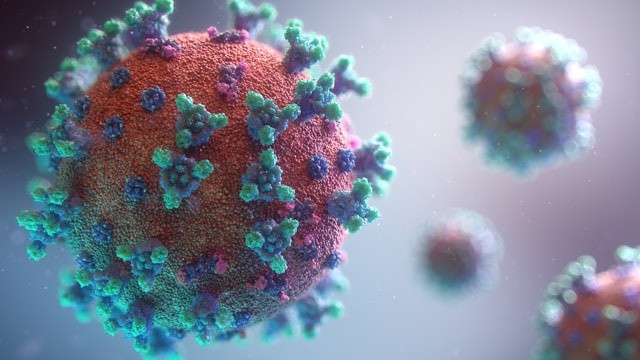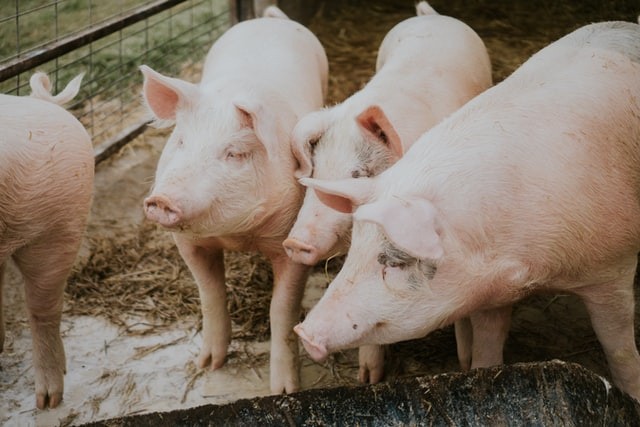Scientists at Iowa State University may have discovered a helpful clue to help them understand why pigs don't show any sign of sickness when exposed to the virus.

What Protects Pigs From COVID-19?
According to studies conducted since the beginning of the Covid-19 pandemic, while pigs can become infected with the virus, they don't show clinical signs of sickness or transfer it to other animals.
An academic publication called Cell Death Discovery published a study led by veterinary diagnostic and production animal medicine professors Rahul Nelli and Luis Gimenez-Lirola in which they sought to discover why this was the case.
According to Nelli and Gimenez-Lirola, their findings could pave the door for new treatments for people infected with COVID-19, the disease caused by the SARS-CoV-2 virus.
Years of research by Nelli and Gimenez-Lirola have focused on the effects of Coronavirus in pigs. To better understand how viruses infect pigs and pig cells, scientists have constructed models that allow them to investigate the cellular responses to infection in great detail, according to Science Daily.
Experiments on respiratory epithelial cells from cultured porcine and human respiratory epithelial cells were conducted for the newest studies. In response to infection, they discovered that pig cells experienced higher rates of apoptosis (or controlled cell death) than human epithelial cells.
"When we looked under the microscope there was an interesting phenomenon going on inside the cells," Nelli said. "The nuclei of the infected pig cells were starting to shred into fragments but not uninfected pig cells."
Benefits of Apoptotic Response
After exposure to SARS-CoV, apoptosis can be detected by seeing the nucleus of an infected cell being torn apart. An early apoptotic trigger causes minimum tissue damage and restricts viral replication, hence minimizing the severity of the infection and the subsequent disease.
Researchers observed that coronavirus-infected human cells are less likely than porcine cells to undergo programmed cell death (apoptosis). According to the study, pig cells are around 100 times more likely to die than human cells.
Necrosis, a less regulated form of cell death, is more common in human cells than apoptosis. Necrosis causes a significant hyperimmune response that is not produced during apoptosis because the contents of the cell are released into the surrounding space.
Researchers believe that a widespread apoptotic response is beneficial in preventing disease because it eliminates contaminated cells fast without triggering the immune system to overreact, whereas widespread necrosis and the associated hyperimmune reaction are harmful to host cells.

Identification of Genes Activated Throughout the Infectious Process
"We don't want to over-conclude, but this response is probably something intrinsic to the pig immune system that is innate and not acquired. The idea is to kill the virus subtly but fast enough so there's not an excessive immune response triggered," said Giminez-Lirola.
Further research could lead to medicines that induce apoptosis in human cells, allowing people infected with the coronavirus to escape severe symptoms, according to the researchers.
They will next compare their findings with those made by other researchers who have found similar gene activations in other animal species.
Deer, for example, may be able to carry the virus without showing any signs of illness, which could help researchers understand how and why this happens.
Related Article : Coronavirus Oubreak in Animals: 60% of Deer in Michigan Tested Positive for COVID-19
For more news, updates about COVID-19 and similar topics don't forget to follow Nature World News!
© 2025 NatureWorldNews.com All rights reserved. Do not reproduce without permission.





